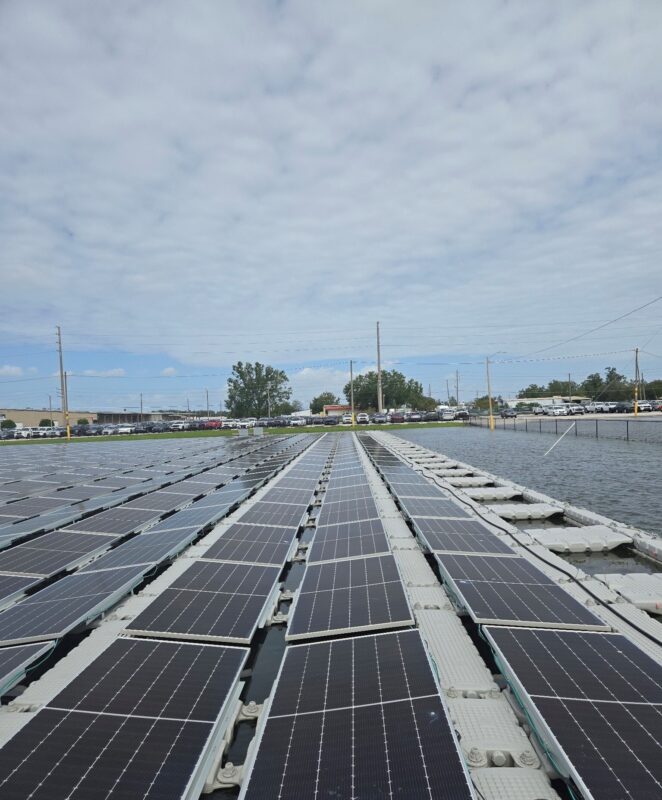
Floating solar (FPV) systems from D3Energy, a US-based FPV developer, have withstood the impact of Hurricane Milton in Florida, US.
After inspecting ten systems across central Florida that have been on the path of the storm, the company reported that all the systems remained fully operational and suffered no damage. This is in contrast with ground-mounted utility-scale and rooftop solar installations, which have been damaged be the storm.
Try Premium for just $1
- Full premium access for the first month at only $1
- Converts to an annual rate after 30 days unless cancelled
- Cancel anytime during the trial period
Premium Benefits
- Expert industry analysis and interviews
- Digital access to PV Tech Power journal
- Exclusive event discounts
Or get the full Premium subscription right away
Or continue reading this article for free
“Our systems are designed to handle extreme weather, and Hurricane Milton was a clear example of that,” said Stetson Tchividjian, managing director of D3Energy. “Seeing all of our systems continue to operate smoothly in the aftermath of such a powerful storm is a testament to the expertise and commitment of our team and partners.”
D3Energy used FPV solution provider Ciel & Terre’s Hydrelio systems at its floating projects, and said that this partnership was a key reason for the resilience of its systems. Hydrelio floating systems are able to handle high wind events due to its flexible, buoyant design and adaptive mooring systems, according to D3Energy.
Building PV resilience to withstand the impact of extreme weather events is an ever-increasing concern in the solar industry and was the main cover story for PV Tech Power 37.






